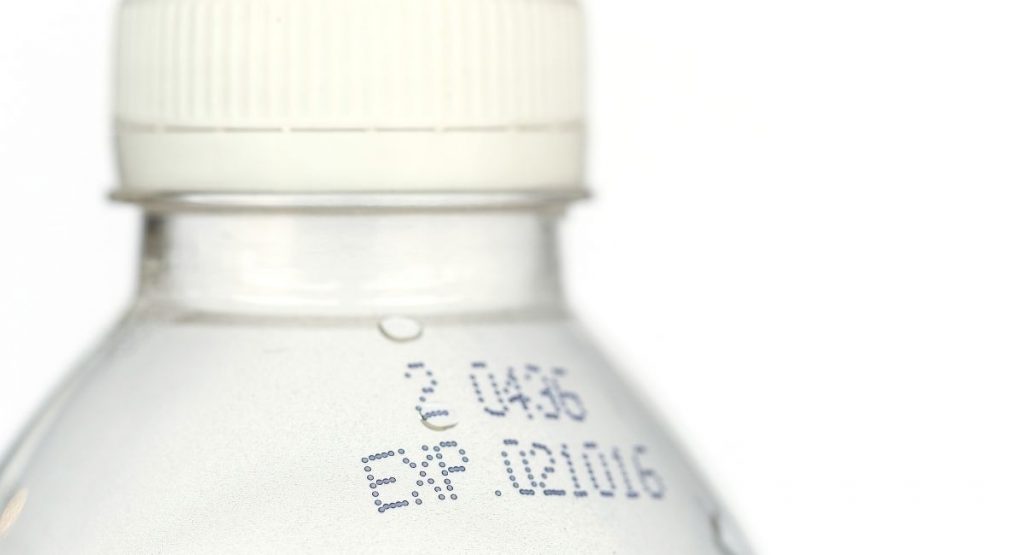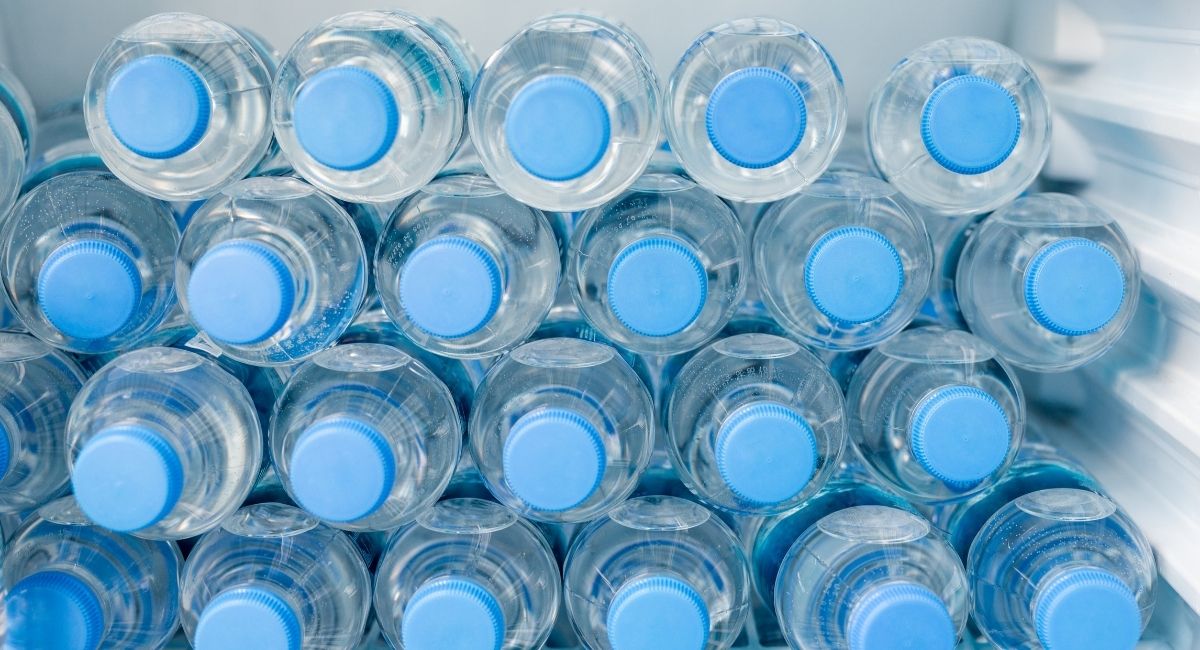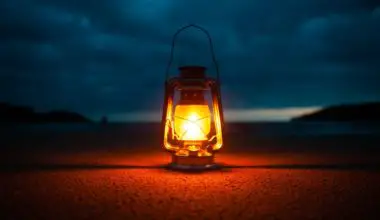Clean drinking water is important to life whether you’re on a retreat backcountry or you’re safe and sound in your home. And, because we can only go three days at the most without it, this is one resource it makes sense to stock up on. All of which raises the question; how long can you store bottled water?
Bottled water products generally don’t go bad as fast as dairy products. However, after a while, it can develop a stale taste. This is why it’s essential you know the shelf life of bottled water with proper storage.
How Long Can You Store Bottled Water?
The shelf life of water in plastic bottles generally doesn’t exceed 1 or 2 years.
While the FDA doesn’t have any 2-year expiration date law in place when it comes to water from plastic containers, you mustn’t drink water that’s past that time frame because of the risk of antimony leaching and other potential health hazards.
So, while actual water quality over time doesn’t deteriorate, bottled water products may undergo certain chemical reactions that may not make the water safe for consumption.
It bears mentioning that bottled water manufacturers also exert some influence in this area. Apart from bottled water brands setting expiration dates for their products, the types of bottles they produce go a long way in determining how well bottled water storage goes.
Naturally, this information poses a lot of important questions. These include:
Should You Store Bottled Water Long-term?
The advent of bottled water changed the world in a lot of ways. The supply of water it offered meant there was always clean drinking water available to people on the go.
And, due to its design and the process that bottled water manufacturers followed, there was less risk of encountering microbial growth or bacteria growth. This is a feat that many local sources of water couldn’t rival.
However, with this potable water supply came pollution and a host of other environmental problems that will likely plague the world for years to come.
That being said, you’d be hard-pressed to find a better emergency water supply storage system. Because it’s easy to store and highly affordable, unopened bottles of water present you with a very convenient way of keeping gallons of water.
What’s more, it’s relatively easier to ration in emergencies as all you have to do is ration bottles of water per person per day.
Still, don’t forget that bottled water products carry expiration dates. As such, you don’t want to just pile potable water in one location and forget about it for years.
Some problems you’re likely to encounter with such an approach are a bit more straightforward – taste. The stale taste of the water may likely warn you off immediately. However, if you continue to ingest such water, you expose yourself to more serious adverse health effects.

Why Should You Take the Expiration Dates on Bottled Water Labels Seriously?
You may be wondering; tap water doesn’t have an expiry date. So why should the contents of your plastic water bottle? What’s more, considering that water retention in unopened bottles is industry standard and virtually impenetrable, why should you worry about any health risks here?
As we’ve mentioned, using plastic water bottles is a great way to store water for long periods of time.
And the bottled water industry generally has a high standard so the quality of plastic water bottle contents is a great and reliable alternative to tap water and water from other sources.
All of that being said, it’s important to mention that the contents of bottled water containers themselves don’t expire. Furthermore, the water is still usually safe for drinking even when it has a stale taste.
This weird taste doesn’t mean the water has expired and is unusable. It’s just a clear indication that certain chemicals and pathogens have altered the taste of the substance.
If you want to consume this water, you still can. All you have to do is take a few simple steps first.
You could either use a water filter to purify the water or use a chemical treatment system.
To finally assuage any concerns about taste you might have, you can use a testing kit to verify the actual water quality.
Once down, you have clean, drinking water on your hands!
However, what does expire and should give ample cause for concern are the different types of bottles that the water comes in.
As most bottled water companies produce these water containers from plastic, leaching of the chemicals in the container into the clean water is an issue that can cause some serious health implications.
Interestingly, even plastic food-grade water storage containers do not have an indefinite shelf life. Health experts have confirmed that even BPA-free bottled water plastic leaches chemicals over certain periods of time.
What Happens When You Drink Expired Plastic Bottled Water?
The result observed will depend on the quality and plastic material used by the bottled water brands.
If you don’t know how long you can store bottled water, then chances are you may have a few expired, unopened bottles in your hands right now.
As an average consumer, you may want to know just what you’re risking if you gulp out of these bottles. Keeping in mind that we sometimes eat food that’s past its expiration date, why should water be any different?
As has been established, the water itself doesn’t expire; it’s the plastic that does.
Now, the expiration date on the bottle doesn’t necessarily indicate the time that antimony levels and other chemicals will start to rise in the water. Rather, it’s a convenient system that most bottled water companies use to help rotate their stock.
However, the one thing that’s just as important as the expiration date that determines whether you can drink expired water safely is how you stored the water.
Unopened bottles stored aware from direct sunlight, excessive heat and chemicals can achieve an almost indefinite shelf life.
But, if the plastic bottles are subjected to bright sunlight, hot conditions, and potentially toxic substances, then you’re better off avoiding it altogether.
Are Glass Bottles a Better Option?
If you’re determined to store clean water long-term, you’re likely already looking at the viability of other alternatives, in this case, glass.
Just like with plastic bottles, your water remains drinkable as long as it’s not contaminated. To ensure this, how you store the water is crucial.
It needs to be free of sources of heat, chemicals, and anything that might foster parasite or bacterial growth.
Water is by nature an acidic solution. And, the temperature of water often influences its level of acidity. So, the higher the temperature of the water, the higher its acidic content gets. With plastic bottles, this higher acid content creates a chemical bond with the plastic, and leaching occurs.
However, nothing of this sort will happen with glass bottles.
However, one downside of using glass bottles is that you need to spend more to procure them as they’re usually very expensive. Also, they take a considerable amount of space, especially when you’re stockpiling for an entire family.
Another drawback to using glass bottles is that if they’re stored in very cold environments, they’re likely to break as they can’t handle the internal pressure that water creates as it increases in volume in these conditions.
What about Metal Bottles?
On the whole, this may be a more ideal, albeit inflexible way of storing water for long periods of time. Provided you keep these properly sealed and store them in a good location, you’ll have safe, clean water without fail.
Metal bottles can also be used to easily store water even in extremely cold conditions. This is because, unlike glass, they don’t deteriorate or start leaking quickly.
The one thing you need to be careful about moving forward with this method of long-term water storage is the type of metal the water bottle is made of. For the best results, make sure you use bottles made from stainless steel only.
Due to the nature of water, bottles made from most other materials will corrode and oxidate over time, contaminating the water they contain.
- 24 hours cold, 12 hours hot
- TempShield️ double-wall vacuum insulation
- Leakproof when closed
- Pure taste, no flavor transfer
How Long Does Bottled Water Last After it’s Opened?
Opened bottle water typically doesn’t last more than 7 days at the most before it goes bad.
However, some factors can make this time frame longer or shorter. For example, if you only pour yourself a glass of water from the bottle and don’t drink directly from it, there’s less of it getting contaminated quickly.
Also, the ambient temperature of the environment of the opened bottled water matters a lot as well.
Conclusion
Since water is crucial to life, knowing how long you can store bottled water can help you plan your storage process better.
Ultimately, if you want to ensure the longest shelf life possible with stored water, make sure you pay special attention to the space you keep the water in.
Pick up some other useful tips here!



